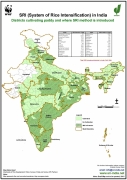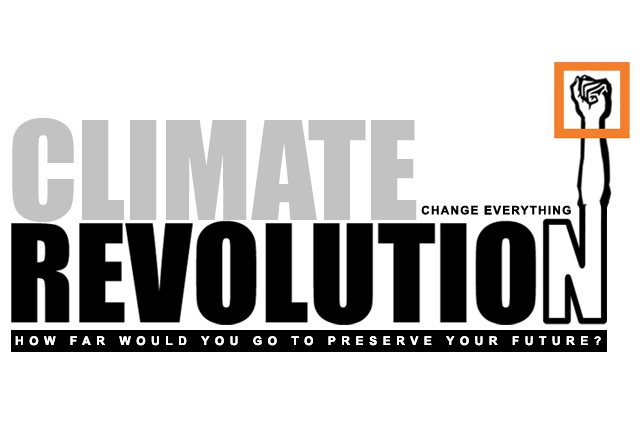/regions/india
India
Neel Ka Dhabba - Sansthayen Narayan Parayan Bane: Essays in Hindi by Mahatma Gandhi and Vinobha Bhave
Posted on 17 Jun, 2010 01:05 AMNeel Ka Dhabba recounts how Gandhiji washed away the stain of cruel oppression of Champaran's Indigo farmers forcibly made to grow Indigo by processors-traders, using caution, non-violence, courage and humility. The essay is narrated by Gandhiji himself.
In Sansthayen Narayan Parayan Bane, Acharya Vinoba takes a critical look at the work of voluntary development organisations, and details what and how their goals, functioning and funds management should be.

Climate policy watch
Posted on 16 Jun, 2010 11:57 PMClimate change has been denied, labelled as a myth and a political manoeuvre or synergised with individual weather events.
Historical maps of Indian towns and cities (1893, 1909, 1924)
Posted on 15 Jun, 2010 11:11 PMThis set of maps of Indian towns and cities, dated between 1893 and 1924, give an idea of historical water bodies in each town/city, and can be compared with present day maps, to discover water bodies, that may have been lost to urban encroachments or other human interventions.
System of Rice Intensification and Paddy Cultivation - Maps developed by the WWF-ICRISAT Project
Posted on 14 Jun, 2010 06:23 PM Paddy, one the country's staple crops is cultivated all over the country, barring parts of Jammu and Kashmir, Gujarat and Rajasthan. This set of interesting maps about Paddy and System of Rice Intensification (SRI) from the SRI India website, maintained by the WWF-ICRISAT Project (a joint initiative of WWF and ICRISAT), give a bird's eye view of the districts under Paddy and SRI Paddy cultivation, and the Paddy productivity in various districts of the country.
Paddy, one the country's staple crops is cultivated all over the country, barring parts of Jammu and Kashmir, Gujarat and Rajasthan. This set of interesting maps about Paddy and System of Rice Intensification (SRI) from the SRI India website, maintained by the WWF-ICRISAT Project (a joint initiative of WWF and ICRISAT), give a bird's eye view of the districts under Paddy and SRI Paddy cultivation, and the Paddy productivity in various districts of the country.
Districts with Paddy cultivation and where SRI approach has been introduced: Of the total 604 districts in India, paddy is cultivated in 564 districts. Of these, in 246 districts, SRI paddy cultivation approach has been introduced (data as of 2010). The spread of SRI has been most widespread in Uttarakhand, Eastern Madhya Pradesh, Orissa, Jharkhand, West Bengal, Andhra Pradesh, Tamil Nadu and Karnataka, as 50-95% of the districts in these regions/states have presence of SRI.
Rain water harvesting or drain water harvesting - A serious approach to water conservation needed
Posted on 12 Jun, 2010 08:41 PMIF CONSERVATION OF WATER SOURCES, RECYCLE, REUSE IS SERIOUSLY NOT ADOPTED NOW THE TIME IS NOT FAR WHEN WE MAY NEED TO "DRAIN HARVEST" WASTEWATER FOR ALL KINDS OF CONSUMPTIONS.
Millions of people worldwide are opposed to plastic bottled water - An alternative solution is here
Posted on 11 Jun, 2010 07:51 PMThe momentum for a better Global drinking Water Environment is increasing.
One way to achieve this Mission is to reduce the global High energy wasteful costs in producing Plastic Bottles, then transporting these products (so-called mineral,spring, volcanic Water) daily to Supermarkets, Newsagents & Corner stores.
Chasing a mirage: Water harvesting and artificial recharge in naturally water-scarce regions - An EPW paper
Posted on 11 Jun, 2010 12:39 PMThis paper refers to the recent plans by the Government of India to undertake artificial recharge of groundwater in over-exploited areas of the country to meet the demands for water and raises certain fundamental questions about the methods used for analysing the hydrological and economic impacts of the interventions.
Irrigation management transfer in India: The processes and constraints - Paper by IRAP
Posted on 10 Jun, 2010 07:12 PMThe paper discusses the evolution of Participatory Irrigation Management (PIM) in India, following the felt need for better irrigation management to prevent water scarcity in many regions in the country.
The irrigation sector was identified as a priority area in the various policy reforms that took place in the water sector in the country.These reforms emphasised the importance of involving end users/farmers in the operation and management of irrigation conveyance systems.
This led to the establishment of the Farmers Managed Irrigation Systems (FAMIS), which aimed at improving the overall efficiency of the irrigation system, generate a sense of ownership among farmers and to improve the irrigation revenue recovery rate. This laid the seeds for Participatory Irrigation Management (PIM) in India.
A complete analysis of water should be done before finalising the water filter
Posted on 10 Jun, 2010 10:23 AMDear Users of IWP,
Activists from the Climate Revolution dig out climate policy gaps through the Right to Information Act
Posted on 10 Jun, 2010 07:27 AM Content Courtesy: AlertNet
Content Courtesy: AlertNet
Activists from the Climate Revolution initiative in India have discovered a crucial tool in their battle to hold the government accountable on its climate policies: the country's landmark Right to Information (RTI) Act.
Read more about Climate Revolution's work on RTI on their website here.